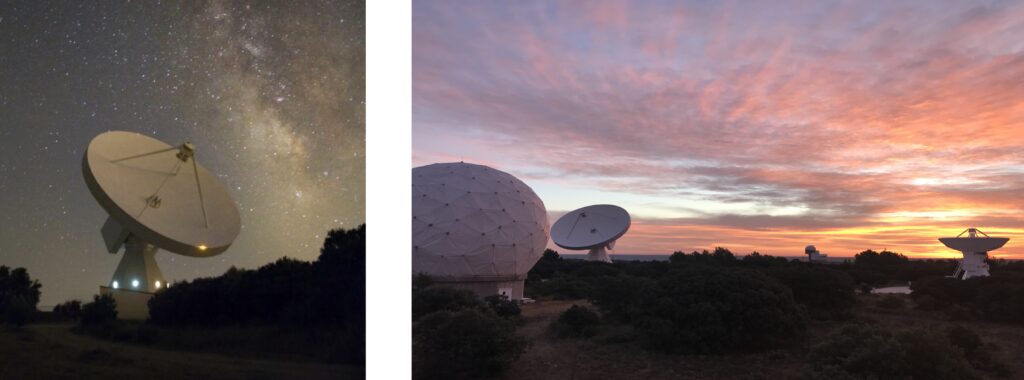
On the 19th of November 2020 an agreement was signed between the Ministerio de Ciencia e Innovación and the Centro Nacional de Información Geográfica (CNIG) for the execution of the project “Infraestructuras para la actualización de los radiotelescopios del Observatorio de Yebes (YNART)” co-financed by the FEDER Spanish programme 2014-2020. The goal of this project is to improve the observational and radioastronomical processing instrumentation of the Yebes Observatory.

Within this framework, Quasar Science Resources, S.L. (Quasar) has formalized and signed a service contract with the Public Administration named “Asistencia técnica para la puesta en marcha de un correlador astronómico y geodésico para RAEGE y EU-VGOS en el Observatorio de Yebes dentro del proyecto YNART cofinanciado con fondos FEDER”. The project, led by Quasar, started in January 2022 with an execution duration of 20 months, and will take place at the Yebes Observatory installations in Guadalajara (Spain). The Yebes Observatory is enclosed, together with the Center for Technological Development (also in Guadalajara), under the Subdirección General de Astronomía, Geofísica y Aplicaciones Espaciales a unit of the Instituto Geográfico Nacional (IGN).
The project to be developed by Quasar, has as primary goal the implementation of a software correlator for the processing of the data from the interferometer RAEGE with astronomical and geodesic targets, and later, with the EU-VGOS project. The RAEGE project “Red Atlántica de Estaciones Geodinámicas y Espaciales” was started by the Instituto Geográfico Nacional (IGN) in collaboration with the Regional Government of Las Azores (Portugal). The ability to absorb and manage the large amounts of data expected from these 4 very large based interferometry -VLBI – stations poses some challenges to Quasar, the main one, the system design itself. It is crucial that the system is capable of managing the reception, transfer, storage and processing of the huge amounts of data that are expected in real time. Also, the system has to be flexible enough to allow for the scalability of the different elements to be able to accommodate the future simultaneous integration of new stations in the system.
Quasar Science Resources, S.L. is a recently formed private company that provides consulting Software and System Engineering services for Research and Development projects. Quasar provides high quality tailored-made services targeted at Research Centres, Universities and Private Companies looking to expand their activity domain. We operate in Madrid (Spain) area, but our customers include national and European partners both in the public and private sectors. Quasar has strong expertise in scientific software development and data reduction techniques, handling and exploitation of scientific databases, archive engineering and data mining, computer systems engineering, including virtual machine infrastructure, network, data storage and backup. Quasar has ample experience working in international collaborations in the fields of ground and space-based scientific astronomical observatories. In 2018 Quasar was accepted into the ESA Business Incubation Centre (BIC) Madrid Region for two years with the SIMBAD(Sentinel Imagery MultiBand Analysis and Dissemination)project, a project devoted to mapping the Posidonia oceanica meadows in the Mediterranean Sea using remote sensing techniques (https://simbad.quasarsr.com). Quasar has offices in Las Rozas de Madrid and at the Parque Científico de Madrid.
More information about the Yebes Observatory in the following link: Introducción al Observatorio de Yebes: Entre el Cielo y La Tierra (Revista del Ministerio de Fomento, No. 694, pp. 3-11).

